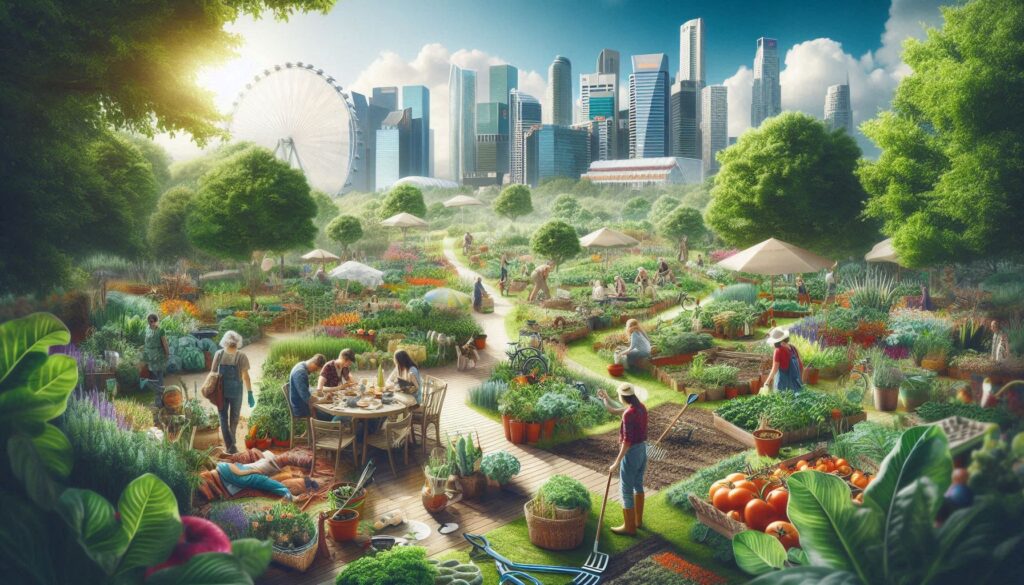Urban gardening has been gaining popularity in recent years as people seek ways to reconnect with nature and enhance their local environment. Beyond providing fresh produce and beautiful green spaces, urban gardening offers a range of environmental benefits that can have a positive impact on the health and sustainability of our cities. In this article, we will explore the numerous ways in which urban gardening contributes to a cleaner, greener, and more sustainable urban environment.
Air Quality Improvement:
One of the key benefits of urban gardening is its role in improving air quality. Plants help to remove harmful pollutants from the air, such as carbon dioxide, nitrogen oxides, and particulate matter. Through a process called photosynthesis, plants absorb carbon dioxide and release oxygen, helping to reduce greenhouse gas emissions and combat climate change. In addition, urban green spaces can help to lower temperatures in cities through shading and evaporative cooling, reducing the urban heat island effect and improving overall air quality.
Biodiversity Conservation:
Urban gardens provide important habitats for a variety of plant and animal species, contributing to urban biodiversity conservation. By creating diverse and ecologically friendly garden spaces, urban gardeners can attract pollinators such as bees, butterflies, and birds, which play a crucial role in ecosystem health and food production. By planting native species and creating wildlife-friendly habitats, urban gardens can help to support local biodiversity and create interconnected green corridors within urban areas.
Stormwater Management:
Urban gardens play a key role in managing stormwater runoff and reducing the risk of flooding in urban areas. Green spaces with permeable surfaces, such as gardens and green roofs, help to absorb and filter rainwater, reducing the burden on drainage systems and preventing pollution of waterways. By capturing and storing rainwater, urban gardens can help to replenish groundwater supplies and mitigate the impact of heavy rainfall events, making cities more resilient to climate change.
Food Security:

Urban gardening contributes to food security by providing fresh, locally grown produce to urban communities. By growing fruits, vegetables, herbs, and edible flowers in urban gardens, residents can access nutritious and affordable food options, reducing their reliance on imported and processed foods. Community gardens and urban farms also play a key role in promoting food sovereignty and empowering communities to take control of their food supply, fostering a more resilient and sustainable local food system.
Waste Reduction and Recycling:
Urban gardening promotes sustainable practices such as composting and recycling, reducing waste and closing the loop on resource consumption. By composting organic waste materials such as kitchen scraps and garden trimmings, urban gardeners can create nutrient-rich soil amendments for their gardens, diverting waste from landfills and reducing methane emissions. By practicing sustainable gardening techniques such as mulching and water conservation, urban gardeners can minimize their environmental footprint and create a closed-loop system that benefits both the garden and the wider urban environment.
In conclusion, urban gardening offers a multitude of environmental benefits that contribute to a healthier, more sustainable urban environment. From improving air quality and biodiversity conservation to managing stormwater runoff and promoting food security, urban gardens play a critical role in creating greener and more resilient cities. By cultivating green spaces and connecting with nature in urban environments, individuals can make a positive impact on the environment and create a more sustainable future for generations to come.
By embracing urban gardening practices and supporting initiatives that promote green spaces in cities, we can create a more sustainable and livable urban environment for all. Let’s cultivate green spaces, foster biodiversity, and promote environmental stewardship through urban gardening today.

